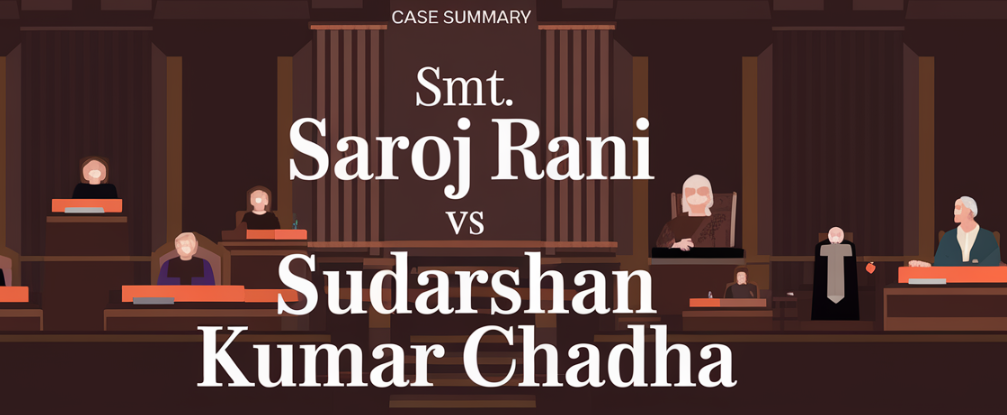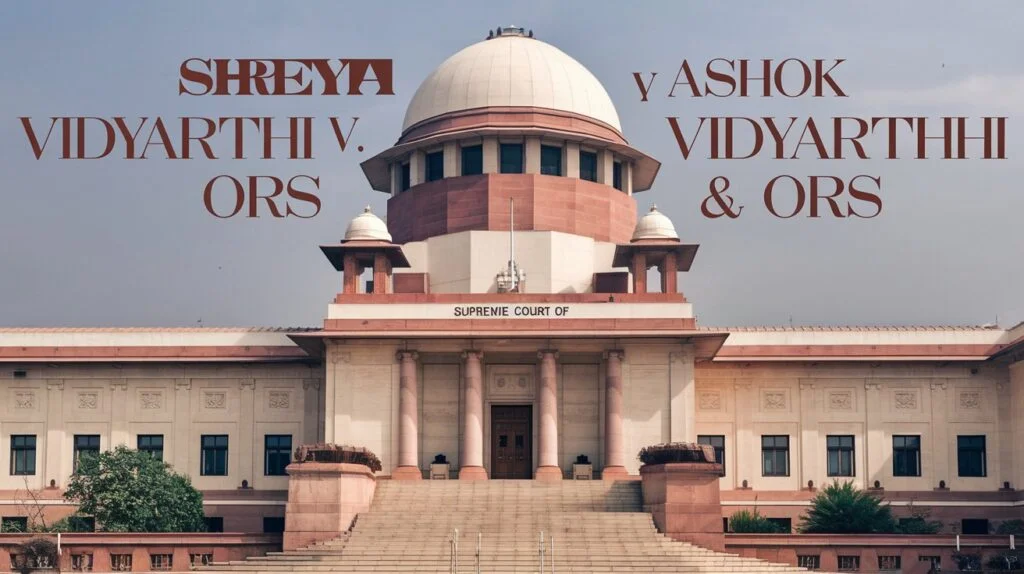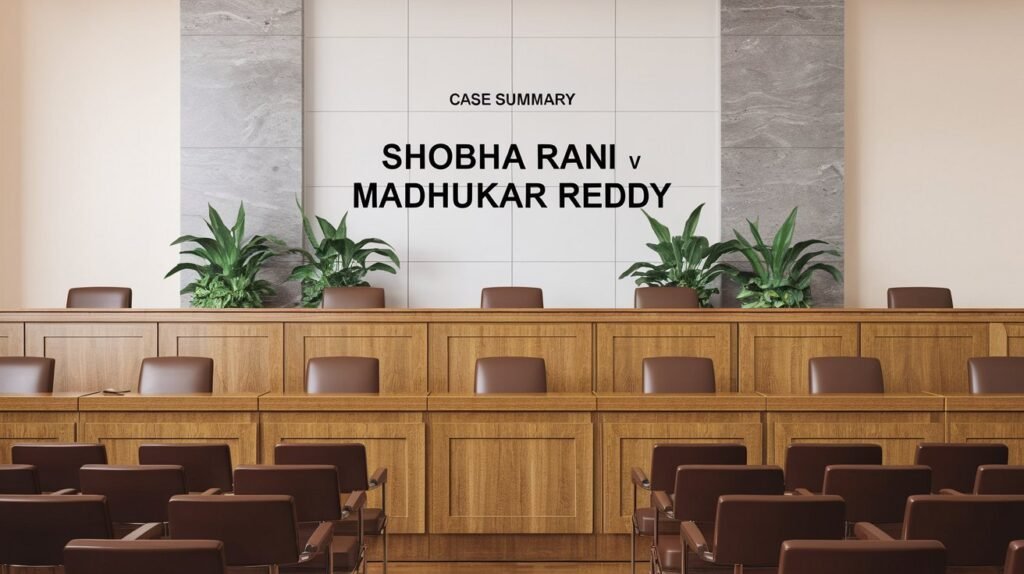Smt. Saroj Rani vs Sudarshan Kumar Chadha 1984 AIR 1562(Case Summary)

In this significant case, The Supreme Court of India addressed key legal issues relating to the decree of restitution of conjugal rights under Section 9 of the Hindu Marriage Act, 1955. The case revolved around whether a husband who had consented to a decree for restitution of conjugal rights could later seek a divorce on the ground of non-cohabitation following the decree. The case addressed whether compelling a spouse to cohabit with the other infringes upon personal liberty under Article 21 of the Constitution.
Table of Contents
ToggleFacts of Smt. Saroj Rani v Sudarshan Kumar Chadha
- Smt. Saroj Rani and Sudarshan Kumar Chadha were married in 1975 and had two daughters. The relationship between the couple deteriorated, and Saroj Rani was allegedly thrown out of the matrimonial home in 1977.
- Saroj Rani filed a petition under Section 9 of the Hindu Marriage Act, 1955, seeking restitution of conjugal rights, which was eventually decreed in her favor in March 1978 after her husband consented.
- Despite the decree, the couple did not resume cohabitation. After one year of non-compliance with the decree, Sudarshan Kumar filed for divorce under Section 13(1-A), claiming that the non-cohabitation amounted to grounds for divorce.
Issues framed
- Whether a husband, after consenting to a decree for restitution of conjugal rights, can seek divorce on the ground of non-compliance with the decree after one year under Section 13(1-A)?
- Whether Section 9 of the Hindu Marriage Act, which allows for the restitution of conjugal rights, violates Articles 14 (Right to Equality) and 21 (Right to Personal Liberty and Privacy) of the Indian Constitution?
Subordinate Court Judgment
The Hindu Marriage Act’s Section 9 provides for the restoration of conjugal rights, and the trial court granted Saroj Rani’s request. However, the trial court awarded Sudarshan Kumar a divorce under Section 13(1-A) when he later applied for divorce on the grounds of non-cohabitation for more than a year. It held that the marriage dissolution was warranted because of the non-compliance with the restitution decision.
Saroj Rani filed an appeal of the divorce order, claiming her spouse was not entitled to a divorce because he had approved the restitution decree. The Punjab and Haryana High Court maintained the trial court’s ruling, finding that the husband’s entitlement to file for divorce under Section 13(1-A) was legitimate and that the couple’s failure to live together following the restitution decree was sufficient justification for a divorce.
Judgment of Smt. Saroj Rani v. Sudarshan Kumar Chadha
The Supreme Court reviewed Section 9 of the Hindu Marriage Act and Section 13(1-A), which allows for divorce if cohabitation does not resume within one year after a decree for restitution of conjugal rights. The Court also examined the constitutional challenge to Section 9.
The Supreme Court held that Section 9 is constitutional, rejecting the argument that it violated Articles 14 and 21. The Court stated that restitution of conjugal rights aims to preserve marriage and cannot be viewed as coercive or tyrannical. Regarding divorce, the Court held that the husband could seek divorce under Section 13(1-A), as non-compliance with the restitution decree indicated irretrievable breakdown of the marriage.
The Supreme Court dismissed Saroj Rani’s appeal and granted Sudarshan Kumar a divorce. The Court reaffirmed that consent to a decree for restitution of conjugal rights does not bar a party from seeking divorce later if there is non-compliance.





